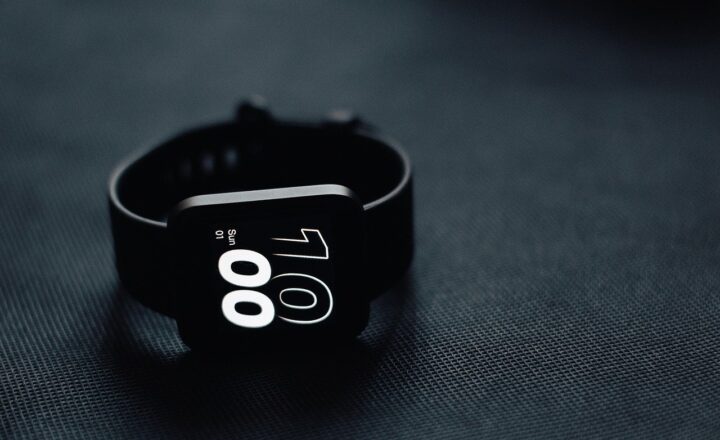What to Consider When Choosing a Smartwatch for Fitness and Health Monitoring
November 13, 2024

In recent years, smartwatches have transitioned from luxury accessories to essential fitness and health monitoring tools. With various brands and models available, choosing the right smartwatch can be both exciting and overwhelming. So, what should you consider before making your purchase? This article aims to provide guidance on selecting the best smartwatch tailored to your fitness and health needs.
1. Identify Your Fitness Goals
Before diving into features and specifications, take a moment to consider your personal fitness goals. Are you looking to track your workouts, improve your cardiovascular health, monitor sleep patterns, or manage stress? Each smartwatch offers different strengths, so identifying your priorities will help narrow down your options.
For example:
- For fitness tracking: Look for models that support multiple workout types, such as running, cycling, swimming, and strength training.
- For health monitoring: Seek features like heart rate tracking, sleep analysis, and stress management tools.
2. Compatibility with Your Smartphone
Not all smartwatches are compatible with every smartphone. If you’re an iPhone user, ensure that the smartwatch you choose is compatible with iOS. Some smartwatches may work best with specific operating systems or even come with their own app ecosystem. Check for compatibility to ensure a seamless user experience.
Popular choices include:
- Apple Watch: Best suited for iPhone users with a rich ecosystem of apps and features.
- Wear OS watches: Compatible with both Android and iOS but generally work best with Android devices.
- Garmin and Fitbit: Offer robust fitness-focused features and work efficiently with both smartphone types.
3. Essential Features for Fitness Tracking
When assessing a smartwatch, consider essential fitness tracking features that cater to your routine:
- Heart Rate Monitoring: Continuous heart rate tracking helps gauge workout intensity and overall heart health.
- GPS Functionality: GPS tracking is crucial for outdoor activities such as running, cycling, or hiking, enabling accurate distance measurement.
- Customizable Workouts: Look for watches that allow you to create custom workout programs aligned with your personal fitness goals.
- Water Resistance: If you swim or participate in water activities, check for water resistance ratings.
4. Health Monitoring Capabilities
Smartwatches offer a range of health monitoring features that go beyond fitness tracking. These include:
- Sleep Tracking: Monitor sleep quality and duration to help improve sleep patterns with valuable insights.
- Stress Monitoring: Some watches come equipped with breathing exercises or stress level assessments to aid in stress management.
- SpO2 Monitoring: This feature measures the oxygen saturation level in your blood, providing insights into your respiratory health.
- ECG Functionality: Advanced watches offer ECG capabilities to monitor heart rhythm and detect irregularities.
5. Battery Life Considerations
Battery life is a crucial factor, as it determines how often you need to recharge your device. Some smartwatches need to be charged daily, while others can last several days on a single charge.
To maximize battery life:
- Opt for power-saving modes when not in use.
- Evaluate the trade-off between features and battery consumption.
- Read user reviews to determine real-life battery performance.
6. Design and Comfort
Since you’ll likely wear your smartwatch for extended periods, assess both the design and comfort factor. Look for a lightweight design, breathable band materials, and a style that fits your taste, whether sporty, sleek, or classic.
Additionally, consider:
- Adjustable Bands: Ensure that the band can be adjusted to fit your wrist comfortably.
- Display Size: Choose a display size that allows for easy reading of notifications and fitness stats without being cumbersome.
7. Additional Features
These can enhance the overall usability and experience of the smartwatch:
- Notifications: Check if the smartwatch offers notifications for calls, texts, and apps.
- Mobile Payments: Features like NFC help facilitate mobile payments for on-the-go convenience.
- Music Control: Some watches allow you to control music playback directly from your wrist, enhancing your fitness routine.
- Customizable Watch Faces: Personalize your smartwatch with various watch face options to reflect your style.
8. Price and Warranty
Smartwatch prices can vary significantly. Before making a purchase, establish a budget and consider features most important to you. Additionally, check for warranties or return policies that provide peace of mind should your watch malfunction or fail to meet expectations.
9. Conclusion
Choosing the right smartwatch for fitness and health monitoring requires careful thought and analysis of your unique needs. By understanding your fitness goals, assessing compatibility with your smartphone, and considering critical features ranging from battery life to health monitoring capabilities, you can make an informed choice. A well-chosen smartwatch can serve as a valuable tool in achieving your health and fitness aspirations.
As technology continues to evolve, the options available ensure that you can find a smartwatch that caters to your lifestyle, enabling smarter and healthier living.







